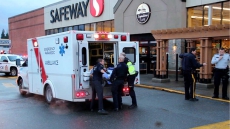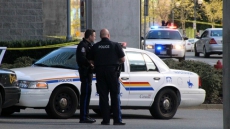ST. JOHN'S, N.L. — The year 2014 in Newfoundland and Labrador politics started with electricity blackouts that sealed one premier's demise, and ended with a fiscal meltdown that threatens another.
In between, the governing Progressive Conservatives lost a string of byelections to the Opposition Liberals, bringing their total defeats in the last 18 months to seven.
The Tories also lurched through two leadership races, the first ending with the expulsion of one candidate and the withdrawal of two others.
The second contest finally crowned Paul Davis as premier in September, allowing Tom Marshall to retire after taking over for Kathy Dunderdale. She stepped down in January amid questions about her leadership and after downplaying provincewide power failures as a non-crisis.
Davis took over just as oil prices tanked. The collapse of Brent crude values from US$115 in mid-June to about US$60 in late December wreaked budget havoc in a province that relies on the offshore sector for one-third of its revenues.
The government has confirmed that a deficit for 2014-15 forecast last March at $538 million has leaped to $916 million.
Davis hinted Dec. 16 on the last day of the fall sitting in the legislature of spending cuts to come. A projected surplus for 2015-16 that would have nicely set up an election he must call within a year of becoming premier is now well out of reach.
How does he like the top job so far?
"I'm starting to adjust to it. We haven't caught a break since September," he said in recent interview in a boardroom down the hall from his office at Confederation Building.
"Some people say: 'It's a test. You're continuing to be tested by some authority somewhere.'"
Some political watchers say the Tories have failed to the extent that they've lost the moral authority to govern and should go to the polls sooner rather than later.
But Davis doesn't sound like a man who plans to roll the electoral dice until he absolutely must, which is within a year of his swearing-in date of Sept. 26.
He points out that the Progressive Conservatives still have 29 members in the legislature compared to 16 Liberals and three New Democrats.
That's well down from the 37 seats Dunderdale won in October 2011.
Liberal Leader Dwight Ball has seen his ranks go from six after the last election to 16 on the strength of byelection wins and some headline-making floor crossings.
Davis said he maintains a strong majority in relative terms.
"We've accepted a responsibility for a four-year term to do a job for the people of the province and we're still living and working within that mandate," he said.
"It's not unusual for a governing party to lose byelections."
But it seems the Progressive Conservatives face an ever steeper climb back to another win, said pollster Margaret Brigley, president and chief operating officer of Corporate Research Associates.
Satisfaction with the government has slipped over the past year to about 50 per cent — a key measure of electoral prospects, she said from Halifax.
"Once you fall below that, we don't typically see a government that is re-elected with satisfaction figures below 50 per cent."





